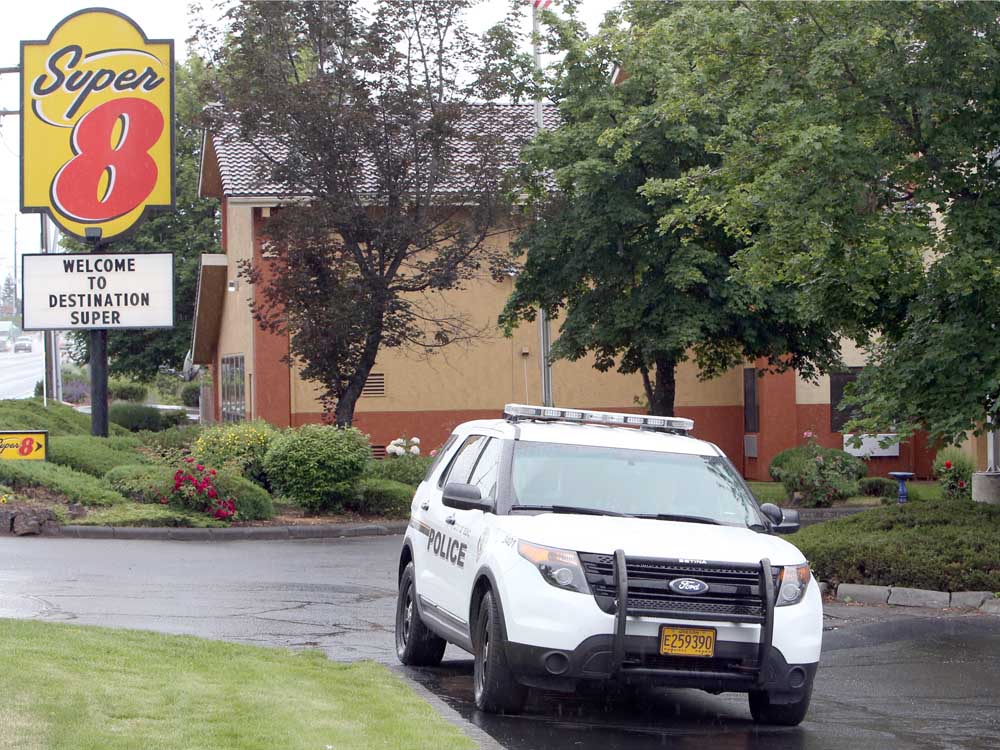261 acres of state-owned land in southeast Bend ready to be listed for sale
Published 5:30 am Friday, February 16, 2024

- This aerial view shows the intersection of Stevens Road, left, and SE 27th Street in Bend in 2021.
State-owned land on the southeast edge of Bend, known as the Stevens Road Tract, is now ready to be sold, and eventually developed, after years of planning. The land, located just beyond Reed Market Road and 27th Street, is expected to host thousands of housing units, new space for businesses, parks and trails on the land within several years.
Before development can occur, the Bend City Council must finalize modifications to the city’s code, transportation system plan and comprehensive plan, which accounts for future population growth. That is expected to happen at its Feb. 21 meeting. Then, the property can be listed for sale with approval from the State Land board, which consists of Gov. Tina Kotek, state Treasurer Tobias Read and Secretary of State LaVonne Griffin-Valade.
Once the state lists the land for sale, a buyer will have to return to the city for approval of a major master plan and then create infrastructure, including a 1.5 million gallon water tank.
The Stevens Road Tract is owned by the Department of State Lands and has been since 1997, when it was passed on from the Bureau of Land Management.
The tract’s current real market value is around $182,000, according to Deschutes County’s property information database.
In recent years, the 261-acre property has been billed as a way to combat the city’s housing crisis because of its sheer size and development potential. That led state legislators to craft a streamlined process for the city of Bend to bring the tract into its urban growth boundary and prepare it for development under House Bill 3318.
More than half of the land — 147 acres — will be dedicated to housing, Damian Syrnyk, a senior planner in the city’s growth management division, said during a Feb. 7 public hearing on the project.
That translates to an estimated 2,500 units of housing, around 700 of which will be reserved for affordable housing and some specifically for educators.
“This is the most complete expansion area in the history of our city,” said City Councilor Anthony Broadman. “It has, if successful, teacher-priority housing built into it.”
A handful of community members were excited about the affordable housing prospects on the Stevens Road Tract, but they were simultaneously worried about the housing’s proximity to the natural gas pipeline that runs along the western edge of the property.
The underground pipeline supplies natural gas across the Pacific Northwest from Canada to California.
It has been a recent subject of controversy locally and nationally as the pipeline’s owner, Gas Transmission Northwest, a subsidiary of Canada-based TC Energy, plans a $355 million expansion project known as the GTN XPress project. The project has been challenged on the federal level. Plus, state and federal elected leaders, including Oregon Sens. Jeff Merkley and Ron Wyden, have vehemently opposed the expansion, while others, including Rep. Lori Chavez-DeRemer, have expressed support.
Riccardo Waites, a founder of the local nonprofit Central Oregon Black Leaders Assembly, said at the Feb. 7 public hearing that he’s concerned for the low-income families who will one day reside in the area.
“Our concern is the development would be close to the high-risk pipeline expansion being done by TC Energy causing a serious health and safety risk,” he said.
The city is limited in its authority when it comes to pipelines, which are regulated by federal law, said Mary Winters, city attorney.
“Without that authority, a city can’t impose approval standards or deny an application for development based on concerns about safety where the federal government has exclusive regulatory power,” she wrote in an email.
The city could create an ordinance mandating setbacks for pipelines, or rules that establish a minimum distance a development has to be from a pipeline.
However, the city can’t create those rules for a single project, Winters said at the public hearing. Councilors expressed interest in taking up the issue later.
The Stevens Road Tract’s neighbor to the west, the Stevens Ranch property will have homes and schools directly abutting the pipeline easement, which spans about 100 feet. The pipeline bisects the two properties. But the safety concerns that arose Feb. 7 didn’t arise during the Stevens Ranch approval process.
Under current plans, a trail will eventually be created above the pipeline.







